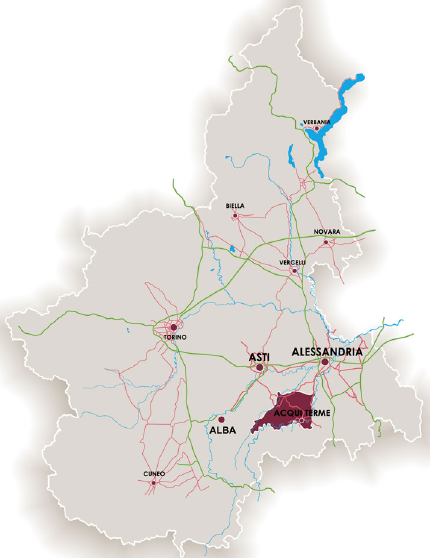Product Environmental Footprint Testing in the Thermal District of Acqui Terme (IT)
The main aim of the pilot action is to evaluate the environmental impacts of the thermal products and services in the district of Acqui Terme, sensitizing public and private actors to a more conscious and respectful use of the thermal resources from the point of view of the environmental sustainability. The Product Environmental Footprint (PEF) methodology is introduced in order to assess the environmental impact of products and services. It consists of a LCA based method: it uses quantitative indicators, such as global warming potential, water consumption, natural resources consumption, to measure the environmental performances of products or services.
The key steps:
Acqui Terme is a small town (about 20,000 inhabitants), in the South-East of Piemonte region, North-West of Italy. Since it was founded by the Romans, “water” was the dominant element (boiling water, extremely rich in therapeutic properties). Today Acqui Terme continues this long spa tradition, offering medical, wellness and beauty treatments in the spa facilities built around its three main springs.
The challenge of the pilot action is to verify the ecological footprint of three potential products and/or services that use thermal water: the PEF methodology will be applied to these products/services to highlight and quantify their potential impacts on the environment.
The pilot action is shared and supported by the Municipality of Acqui Terme and is aimed at relaunching the complex of the “former Military Baths” according to design criteria that are sustainable from an environmental point of view.
Already in the design phase, the entire life cycle of the services/products and the way in which they “interact” with the environment will be assessed, including the pre-production, production, distribution, use and reuse phases, final disposal.
Criticalities will be identified in order to hypothesize solutions aimed at saving and recovering energy and materials (in particular thermal water).
The main indicators are the following:
- experts involved in the implementation of the pilot action;
- public and private stakeholders involved in the Regional Working Groups;
- public and private companies which take part in the training on the PEF methodology and on the environmental impact of products/services that use thermal water;
- citizens involved in raising awareness activities;
- presentation of the main findings at the regional and national level.
The innovative aspect is the sharing of a common methodology for assessing the environmental impacts of spa products and services, with a view to sustainability and enhancement of the circular economy. Products and services are not assessed on the basis of their economic performances but on how they impact the environment.
At the local level the possibility of a complete recovery of the thermal vocation of the area become concrete and sustainable.
Contribution of a sustainable development:
The involvement of public and private companies at regional level during the final phase of the pilot action (training phase), allow to generate an important multiplier effect on other territorial areas that use thermal water as a development factor. The environmental assessment methodology that can be used even after the end of the HealingPlaces project.
The transnational added value:
The sharing of a methodology recognized by the European Union - Product Environmental Footprint (PEF) methodology - allow the transfer of the local experience to other territorial contexts, also at transnational level.
The most important lesson is the importance of understanding and managing the complexity of the supply chain, upstream and downstream of the production / supply process.

More informationa about the Pilot Action in Acqui Terme:
